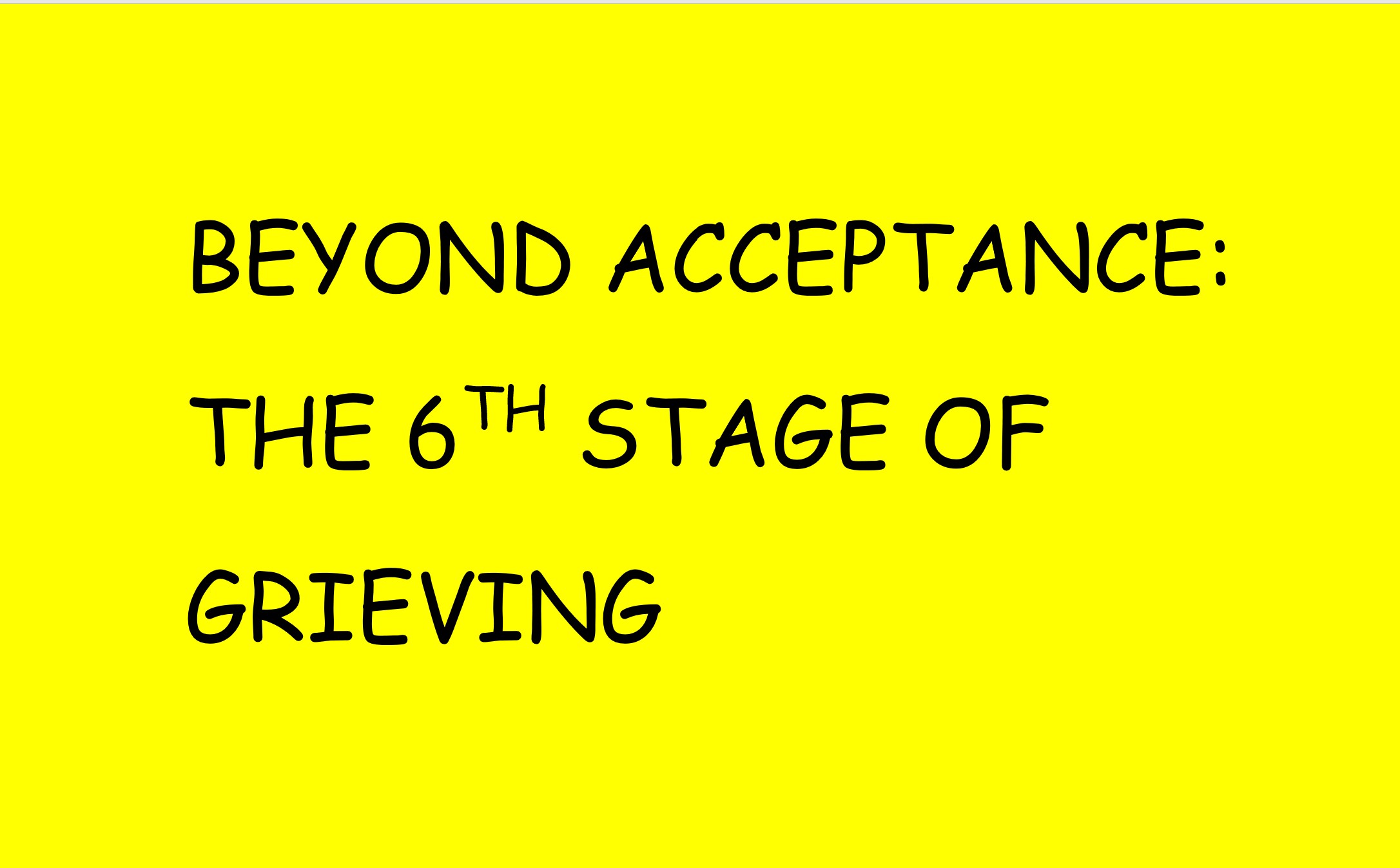
I’ve noticed that, as we start the new year in the midst of COVID, many folks are struggling with loss and grieving. For some, the loss involves the death of family members or loved ones. For others, it has meant the loss of financial security. And, for others, COVID has meant the frustrations encountered in the loss of normalcy.
For many, the words grief and grieving are synonymous with the name Kubler-Ross and the five stages of grief. Five Stages Of Grief – Understanding the Kubler-Ross Model (psycom.net) What you might not be aware of are the important developments in grief research which have taken place over the past 40 years since Kluber-Ross’s publication. This research has significantly advanced our understanding of the grieving process and revealed that there is yet another stage of the recovery process.
One important discovery explains how the grieving process ends. Rather than finishing with the 5th stage of acceptance, research has shown that folks who have reported going through another step. People who have successfully recovered from serious loss report finding a new purpose in their life which has given rise to hope and joy about the future. ( Digital Seminar – David Kessler: Finding Meaning: The Sixth Stage of Grief (pesi.com)
Thus, the 6th stage can be described as the experience of new hope and meaning. This stage appears, unexpectedly, and converts the grief over loss in the past into a new direction for life moving into the future. Easter as Psychological Metaphor: The Resurrection of Hope and Meaning. | Pastoral Counseling Syracuse NY (revmichaelheath.com)
— Why Acceptance is Not Enough
Of course, acceptance of loss can bring a sense of relief and peace. However, acceptance which has given up the struggle of denial can also be experienced as a grim resignation. This depressed outlook is not necessarily pathological but may be simply a human reaction to the depressing circumstances of having lost something very important to the person. In other words, one can get beyond the distress of anger and hopelessness and still experience life as significantly diminished and bleak.
For example, a spouse may adjust to the loss of his/her partner in practical ways but still feel empty. People may adapt to the changes and restrictions imposed by COVID but still miss the way life used to be. From a philosophical or spiritual point of view, when life is lived without hope and meaning, it is fair to say that the grieving process has not been completed.
— Why the 6th Stage is so Important
The 6th stage of grieving is important because it fills the hole which the loss created. Believing, again, that life can be worth living takes away the pain, fulfills the soulful longing and brings joy to a life that was devasted by the loss. Rediscovering transcendent meaning and purpose is the essence of the 6th stage.
What is frustrating about the 6th stage of grieving, however, is that it is, in many ways, out of our intentional control. It simply appears to us or grasps our awareness, often, when we least expect it. We can do many helpful things such as writing or talking to a counselor about our feelings to move through the earlier stages of grief. Finding new meaning, however, is not something which can be intentionally created or controlled by practicing psychological techniques. The biblical metaphor for this discovery is expressed in the Christian notion of resurrection. Putting the supernatural/mythological elements aside, the grief of the apostles was overcome and displaced by the experience of the unexpected. The joy of the resurrection came from a new sense of meaning and purpose.
— Having Realistic Expectations and Making a Leap of Faith
So, while we can’t control the appearance of or create hope and new meaning, there are still some things that we can do that will help us get there. Having an accurate understanding of the grieving process helps us to have realistic expectations for emotional healing. An informed awareness of how we grieve can ease the pain of disappointment which comes from being misled by myths and having unrealistic hopes. For example, two common misunderstandings are that getting over a loss should take a certain amount of time and that it pretty much the same for everyone. It can’t be emphasized enough that each person is unique and the time it takes and the way that a person grieves can vary dramatically.
What makes getting past painful losses so difficult is that recovery requires relying on things which were damaged or lost in the trauma: patience and trust. Indeed, whether one is a person of faith or not, complete emotional healing goes beyond psychology and encounters the deeply existential and spiritual dimensions of life. It is an article of faith, not psychology, to believe that, ultimately, life has a transcendent purpose which reveals the joy of living. Trusting and having patience in the grieving process is difficult in the midst of grief but somehow it emerges. The good news I have witnessed with many clients over the years is that that the shock of hope and of a new sense of the ultimate purpose of life does emerge as our mind and souls heal and our life begins a new chapter.
Rev. Michael Heath, LMHC, Fellow AAPC 1 15 2022


